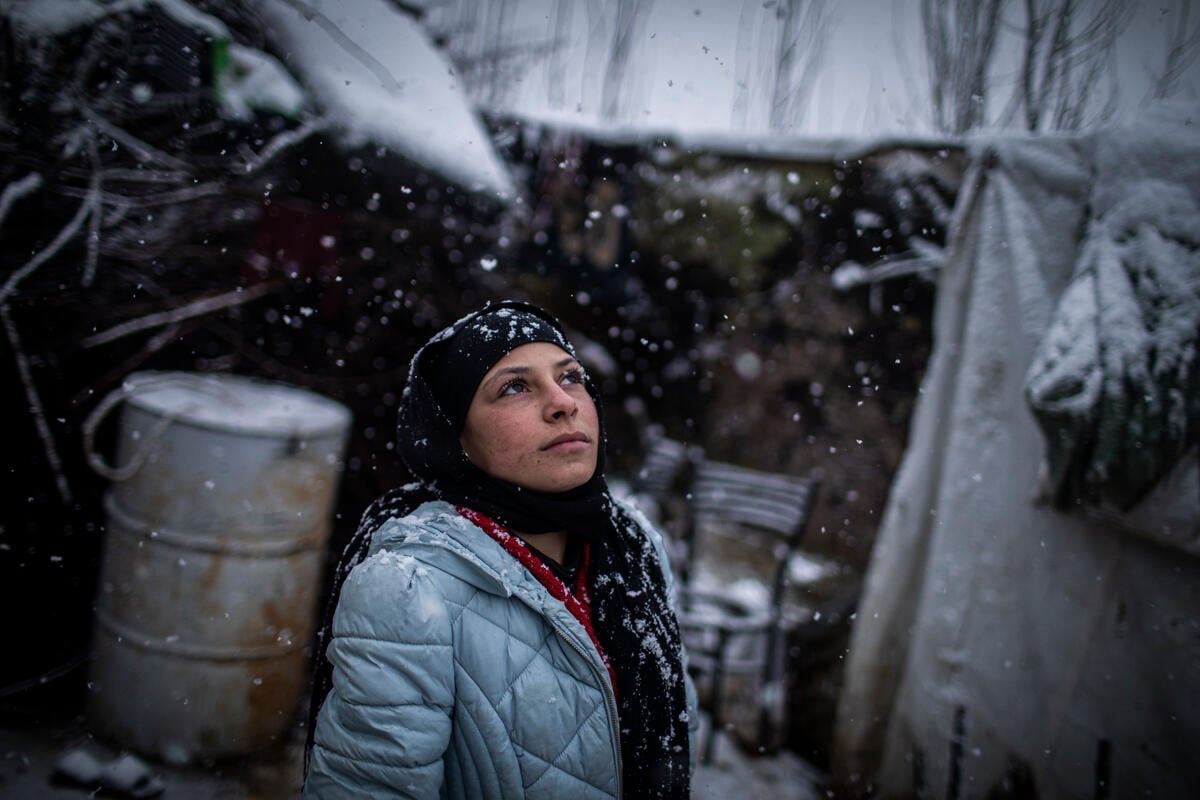David Morrissey: 'I've seen the difference resettlement can make'
David Morrissey: 'I've seen the difference resettlement can make'
In Cairo, David met Mohammed and his wife Muna who had fled to Egypt from Syria after their house in Damascus was directly hit in by a shell. Muna lost a leg in the bombing and Mohammed received a shrapnel wound to his back, leaving him in constant pain. As a result, they are reliant on their son, Omran, who since the age of eleven has been employed as a delivery boy for eleven hours a day, six days a week, to support his parents and siblings.
But this family is one of the lucky ones. They were identified for resettlement by UNHCR and in January this year flew to Scotland to start a new life in Ayrshire.
Resettlement is the transfer of refugees from an asylum country to another state that has agreed to admit them and ultimately grant them permanent settlement.
“Some of the refugees I met in Egypt were really vulnerable,” said Morrissey, the star of TV hit Britannia. “There was a single mum from South Sudan whose husband had been killed, and she was so worried about what would happen to her six daughters. I've met people in similar situations in Lebanon and in camps in Jordan and seen how hard it is for them. I’ve also met refugees who have been resettled to the UK and what a difference it has made to their lives.”
According to figures released this week, more than 1.4 million refugees living in 62 host countries will be in need of resettlement next year. Last year, just 107,000 refugees were resettled globally.
“Despite the COVID-19 pandemic, conflict and persecution have not stopped and people around the world continue to flee their homes in search of safety,” said UN High Commissioner for Refugees Filippo Grandi, who is attended annual consultations on resettlement this week. “Resettlement can never be a solution for all of the world’s refugees but for the few that are most at risk it can mean the difference between life and death.”
According to the Projected Global Resettlement Needs 2021 report, refugees most at risk and in need of resettlement include Syrian refugees. For the fifth year in a row, Syrians represent the population with the highest resettlement needs (41 per cent), followed by South Sudanese (9 per cent) and refugees from the Democratic Republic of Congo (9 per cent).
Resettlement helps ensure the protection of those whose lives may be in danger or who have specific needs that cannot be addressed in the country where they have sought protection.
Developing countries host 85 per cent of the world’s refugees. By region of asylum, the East and Horn of Africa continues to account for most resettlement needs. This is followed by Turkey, which is host to 3.6 million refugees, the Middle East and North Africa and the Central Africa and the Great Lakes region.
To share responsibility and show solidarity with states supporting large refugee populations, increasing opportunities for refugees to move to third countries through resettlement and complementary pathways for admission -- including family reunion, work and study routes -- is one of the key objectives of the Global Compact on Refugees, an international accord that aims to bring together a range of actors to find solutions for refugees and better support their hosts.
This year only 57,600 resettlement places have been made available by states to UNHCR. Unfortunately, COVID-19 will impact the full realisation of these resettlement spaces.
“I think that human displacement is one of the biggest challenges of our times,” said Morrissey. “When I travel to meet refugees, I find they have amazing resilience and creativity, and a willingness to contribute. We can all try to help asylum-seekers and refugees in our communities, support local authorities to resettle refugees, or donate to the charities that are helping them. In the UK, there’s been a real sense of welcome for refugees in the past few years and it’s important that we keep that up.”










